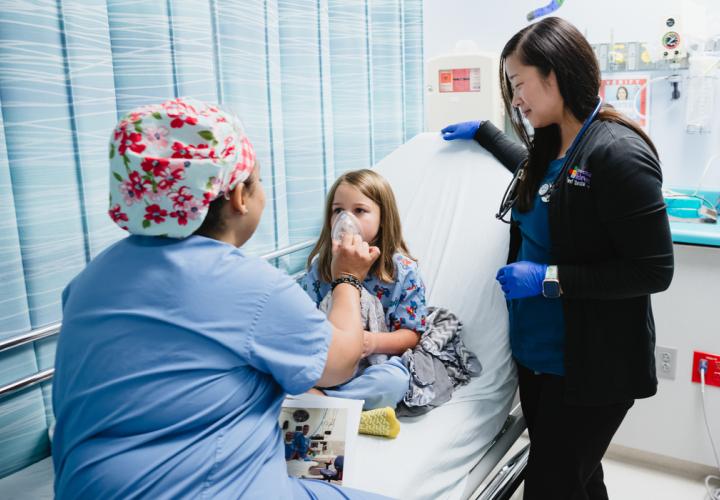When it’s time to explain anesthesia to your child, try these suggestions for what to say.
What anesthesia does
When people have surgery, they get a special sleepy medicine so their body doesn’t hear, see or feel anything during the surgery. This medicine is called anesthesia. The doctor who gives you the sleepy medicine is called an anesthesiologist.
TIP: Be careful about words with double meanings. For example, if your child might be reminded of a family pet that was “put to sleep,” avoid those words. Instead, say something like “The medicine will help you take a nap until the surgery is done.”
> Related: How to Prepare Younger Kids for the COVID-19 Vaccine
How anesthesia works
Most kids are able to use a soft and squishy mask to breathe in the sleepy air. Some kids think the sleepy air smells like Sharpie markers or permanent markers, so you can choose a flavor of chapstick to go inside the mask to make it smell better. You can also take big breaths in and out of the mask (like you might blow out birthday candles) and the air won’t smell as bad.
Other kids might need a special tiny straw, called an IV (that’s short for “intravenous,” which means “in your veins”) to give their body the medicine to fall asleep. If you need an IV, the hospital has special freezy spray to make it easier.
